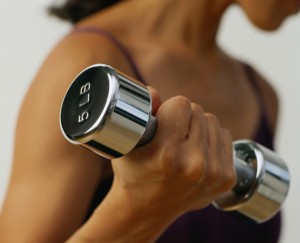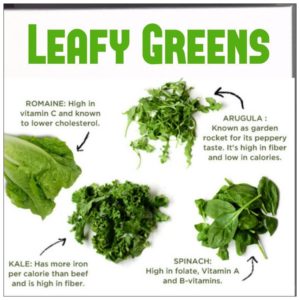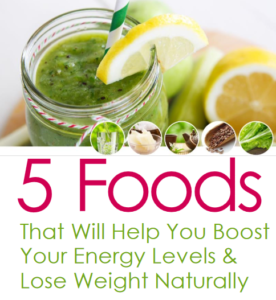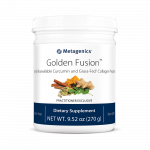Stop osteoporosis and strengthen your bones as you age – the 6 Do’s and Don’ts
This blog was inspired by my grandmother.
After my grandfather died my granny lived for many years on her own with her dog for company, doing everything for herself, well into her late 80’s. She really cherished her independence until the day she slipped and broke her hip, her life was never the same again. She had osteoporosis.
She was moved to an old age home so she could be taken care of. Her hip never really fully recovered and she struggled to walk properly again. She was kind of happy and cared for, but she’d lost her independence and she had to stay in the home for the rest of her life. Not an uncommon story, but I wanted to dedicate my article to her and to you, so you have essential knowledge about keeping your bones strong and healthy as you age.
When it comes to the health of your bones from the age of 35 your bone mass declines. Adopting the right strategies to prevent low bone density or osteoporosis needs to start before you get a diagnosis. In the article I’ve given you a few essentials to consider, that will help keep you strong and stable as you age.
Strong Bones – 6 Do’s and Don’ts!
The health of your bones is instrumental to your health and longevity. Bone formation peaks between the ages of 20 and 30. After the age of 35 you begin to lose bone mass unless you take action to prevent it!
We all seem to have it in our heads that we only need calcium to build healthy, strong bones. However there’s far more to the story to giving you fracture free strong bones, both now and down the road. There are other essentials components for better calcium absorption and stronger bones.
1. Physical activity – your bone is a dynamic living tissue that gets stronger when stressed and weaker when not used. So the best way to improve your bone mass is with weight-bearing exercise, strength training and improving your coordination and balance (with yoga or Tai Chi).
Weight-bearing exercise includes walking, running, dancing and stair climbing. Strength  training (lights weights or using your own body weight) has been found to prevent falls—the most common cause of hip and wrist fractures— when you get older. Swimming and cycling are less effective for maintaining strong bones because they are not weight-bearing.
Try to get 30 minutes of moderate-intensity physical activity daily, including weight-bearing exercise, strength training (at least twice a week), and activities that improve balance to help prevent falls.
training (lights weights or using your own body weight) has been found to prevent falls—the most common cause of hip and wrist fractures— when you get older. Swimming and cycling are less effective for maintaining strong bones because they are not weight-bearing.
Try to get 30 minutes of moderate-intensity physical activity daily, including weight-bearing exercise, strength training (at least twice a week), and activities that improve balance to help prevent falls.
2. Calcium – You need 1,000 mg under the age of 50 and 1,200 mg over the age of 50. 700mg a day = eat a handful of almonds, an orange or a serving of broccoli. Other good sources include sardines and sesame seeds.
3. Key nutrients or co-factors are necessary to support the absorption of Calcium into your bones.
a) Vitamin D – is essential. If you’ve not had much sunlight exposure you might be deficient. You can also get it from foods such as oily fish and egg yolks. About 400IU/day
b) The support of probiotics. A recent research study found women 48 and older who took a probiotic supplement for at least eight weeks improved their bone density by 36%, compared to those who didn’t take a probiotic.
c) Omega 3 – found in flax, oily fish and chia seeds increases the absorption of calcium plus omega 3 is anti-inflammatory. To much inflammation stimulates the bone dissolving cells (osteoclasts).
d) Vitamin K – is a fat-soluble vitamin found in broccoli, cauliflower and green leafy veg. It’s needed to make a protein that’s essential for your bone formation. A study found that those who consumed moderate or high amounts of vitamin K from vegetables had a 30% lower risk of hip fractures than women consuming little or none. Only 100-150mg per day is needed, 500mg of kale gives you your daily portion.
e) Magnesium intake regulates calcium absorption into the bones and approximately 50% of total body magnesium is found in your bone. Calcium and magnesium work together like 2 sides of a coin. If you consume a 1,000 mg of calcium per day, then you need at least 500-800 mg of magnesium.
4. Mediterranean diet – latest research shows your skeleton needs a wide range of nutrients to stay young, several studies have found that higher intakes of fruits and vegetables, particularly those rich in potassium, are associated with lower risk of fractures.
Eat a minimum of 7 servings of a variety of different coloured fruits or vegetables daily. Olive oil can raise your blood levels of osteocalcin a marker of strong bones. The antioxidant Lycopene found in tomato can help reduce fractures.
5. Another reason to eat your vegetables – is your diet acidic or alkaline? Calcium is stored in your skeleton and is used to neutralise acids in the body.
Dr Susan Lanham- New, professor at the University of Surrey, completed an analysis of clinical trials of the alkaline diet and its potential benefits. ‘An alkaline diet would be beneficial to all women as it appears to help conserve calcium and benefits muscle, heart and bone function.’
Acid forming diets are rich in grains, proteins and diary will leach calcium from your bones, fruit & vegetables are classed as alkaline and reverse this process in your body.
New, professor at the University of Surrey, completed an analysis of clinical trials of the alkaline diet and its potential benefits. ‘An alkaline diet would be beneficial to all women as it appears to help conserve calcium and benefits muscle, heart and bone function.’
Acid forming diets are rich in grains, proteins and diary will leach calcium from your bones, fruit & vegetables are classed as alkaline and reverse this process in your body.
6. What to drink? Try to reduce caffeine as it’s diuretic effects increases the amount of calcium you excrete for several hours after we drink it. Research also shows that caffeine may interfere with the absorption of Vitamin D. Since Vitamin D is necessary for the body’s absorption and use of calcium. Avoid fizzy drinks, they contain phosphoric acid which interferes with calcium absorption.
The good news for wine lovers – Oregon state University suggest a small glass of wine with dinner may be good for bones, but that’s in moderation of course go – overboard and it has the reverse effect.
If you don’t want to miss any future newsletters or blogs please sign up here in the sign-up box.
If you’re struggling with any kind of imbalance, tiredness, low energy, hormonal or wanting to lose your excess weight. I’ve put together a FREE guide for you, so you can start to learn how and why specific foods, and drinks, can help you have more energy and lose weight naturally.
You’ll find it is easy to add these ingredients into your diet on a daily basis – get your downloadable guide here
In fact, at the end, I’m going to share one simple recipe you can make in under five minutes that incorporates all of these foods.
Get your copy of the FREE guide:
5 Foods that will help boost Your Energy Levels and Lose Weight Naturally.
HERE

 Omega-3 fatty acids are found in fatty fish, such as herring, sardines, and salmon. Other sources of omega-3s include flaxseeds & walnuts. Omega-3s are known to decrease inflammation and may reduce the risk of acne and other skin problems.
Omega-3 fatty acids are found in fatty fish, such as herring, sardines, and salmon. Other sources of omega-3s include flaxseeds & walnuts. Omega-3s are known to decrease inflammation and may reduce the risk of acne and other skin problems. possess such a wide spectrum of qualities and medicinal uses.
possess such a wide spectrum of qualities and medicinal uses. It’s great for infections or inflammation like achey joints.
It’s great for infections or inflammation like achey joints.